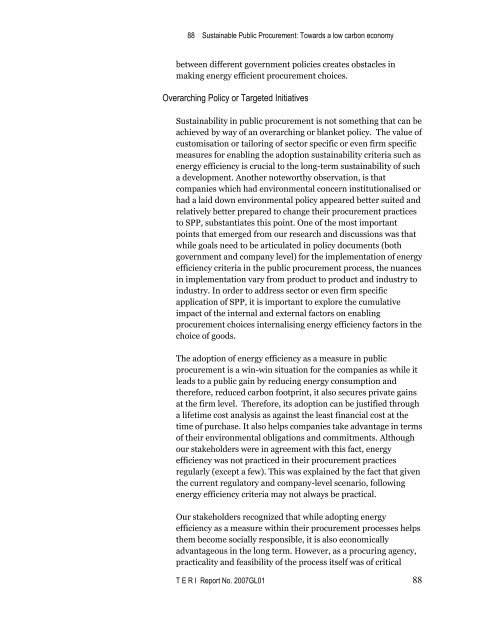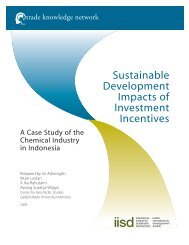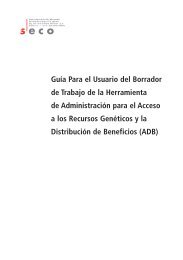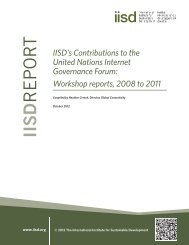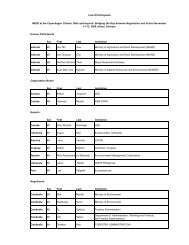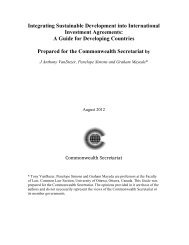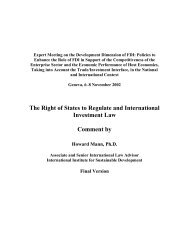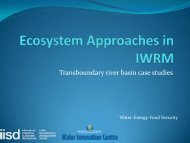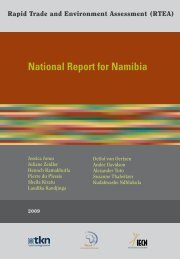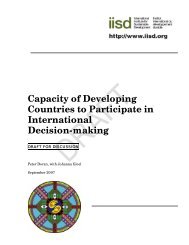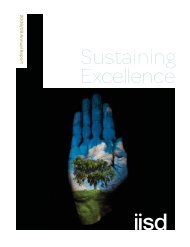Sustainable Public Procurement: Towards a lowâcarbon economy
Sustainable Public Procurement: Towards a lowâcarbon economy
Sustainable Public Procurement: Towards a lowâcarbon economy
You also want an ePaper? Increase the reach of your titles
YUMPU automatically turns print PDFs into web optimized ePapers that Google loves.
88 <strong>Sustainable</strong> <strong>Public</strong> <strong>Procurement</strong>: <strong>Towards</strong> a low carbon <strong>economy</strong><br />
between different government policies creates obstacles in<br />
making energy efficient procurement choices.<br />
Overarching Policy or Targeted Initiatives<br />
Sustainability in public procurement is not something that can be<br />
achieved by way of an overarching or blanket policy. The value of<br />
customisation or tailoring of sector specific or even firm specific<br />
measures for enabling the adoption sustainability criteria such as<br />
energy efficiency is crucial to the long-term sustainability of such<br />
a development. Another noteworthy observation, is that<br />
companies which had environmental concern institutionalised or<br />
had a laid down environmental policy appeared better suited and<br />
relatively better prepared to change their procurement practices<br />
to SPP, substantiates this point. One of the most important<br />
points that emerged from our research and discussions was that<br />
while goals need to be articulated in policy documents (both<br />
government and company level) for the implementation of energy<br />
efficiency criteria in the public procurement process, the nuances<br />
in implementation vary from product to product and industry to<br />
industry. In order to address sector or even firm specific<br />
application of SPP, it is important to explore the cumulative<br />
impact of the internal and external factors on enabling<br />
procurement choices internalising energy efficiency factors in the<br />
choice of goods.<br />
The adoption of energy efficiency as a measure in public<br />
procurement is a win-win situation for the companies as while it<br />
leads to a public gain by reducing energy consumption and<br />
therefore, reduced carbon footprint, it also secures private gains<br />
at the firm level. Therefore, its adoption can be justified through<br />
a lifetime cost analysis as against the least financial cost at the<br />
time of purchase. It also helps companies take advantage in terms<br />
of their environmental obligations and commitments. Although<br />
our stakeholders were in agreement with this fact, energy<br />
efficiency was not practiced in their procurement practices<br />
regularly (except a few). This was explained by the fact that given<br />
the current regulatory and company-level scenario, following<br />
energy efficiency criteria may not always be practical.<br />
Our stakeholders recognized that while adopting energy<br />
efficiency as a measure within their procurement processes helps<br />
them become socially responsible, it is also economically<br />
advantageous in the long term. However, as a procuring agency,<br />
practicality and feasibility of the process itself was of critical<br />
T E R I Report No. 2007GL01 88


